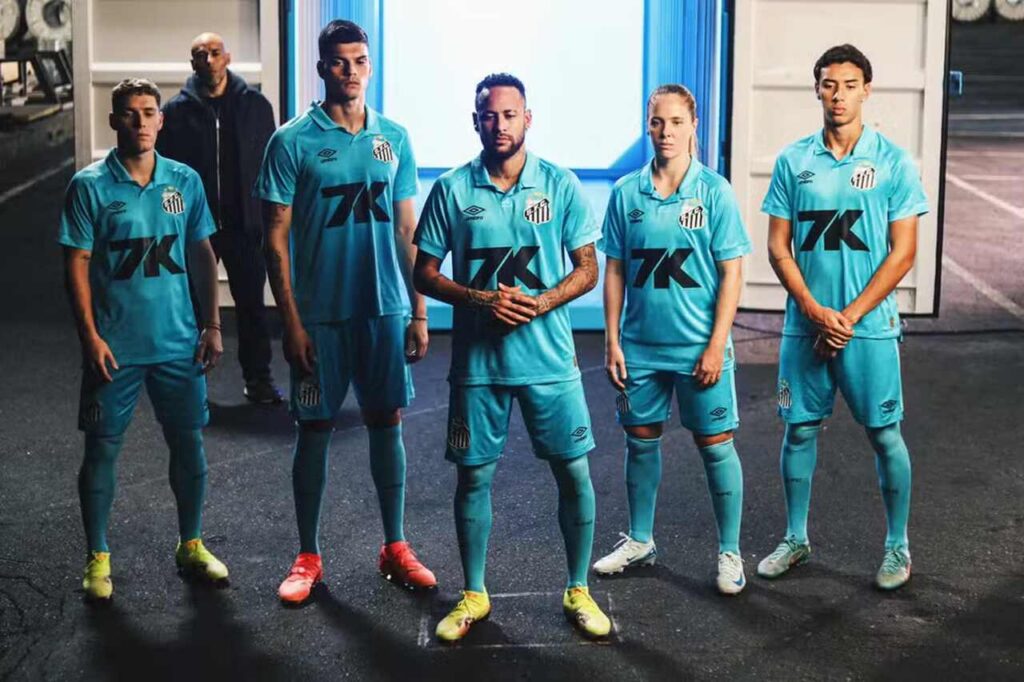June 9, 2025
Reading time • 5 min
Clubs step up fight against piracy after billion-dollar losses from counterfeit shirts
Neymar’s return has stirred up much more than social networks and fan membership plans at Santos. With the commercial impact of the number 10’s return, Peixe decided to create a Planning and Strategic Affairs Department, since the area was structured to take care of the economic defense of the club’s main properties, focusing on sports materials, licensed products and broadcasting rights, expanding control over the use of the brand and trying to turn engagement into revenue.
The national scenario also explains the movement, with a recent study showing that the damage caused by piracy in Brazil would exceed half a trillion reais by 2024. In soccer, according to the FNCP (National Forum against Piracy and Illegality), the impact is direct, with counterfeit shirts accounting for 37% of the items sold in the country and generating losses of around R$9 billion for teams in 2022 alone, according to the most current research. Illegal sales directly interfere with the potential for revenue from official products.
Seeking to tackle this problem more effectively, Volt Sport, a sports equipment supplier that serves more than ten teams in the country, has started a partnership with a law firm specializing in combating piracy. The joint effort relies on the use of artificial intelligence to monitor and identify the irregular sale of items with licensed Brazilian soccer brands.
Fortaleza, for example, is betting on alternatives to compete with piracy. In 2020, the club launched an initiative that reduced the price of official shirts to R$59.90, well below the full price of R$225, with the strategy including the distribution of uniforms by street vendors who are partners of the club around the stadium, bringing the product closer to the fans and making it difficult to compete with the illegal market.
More recently, rumors about a supposed new red Brazilian national team jersey for the 2026 World Cup fueled the production of pirated versions, despite the official denial from the CBF. The reaction came in a Civil Police operation, which seized counterfeit uniforms, including red models, during an action in Brás, São Paulo. The material was scattered around six points of sale, and those responsible were arrested under the General Sports Law.
Meanwhile, teams continue to try to strengthen control over the use of their brands. One example is Sport Recife, which signed a partnership a little over a year ago with Valinke, a company specializing in digital protection. The aim is to curb the misuse of the club’s visual identity and limit the damage caused by the illegal sale of products that should contribute directly to the team’s revenue.



